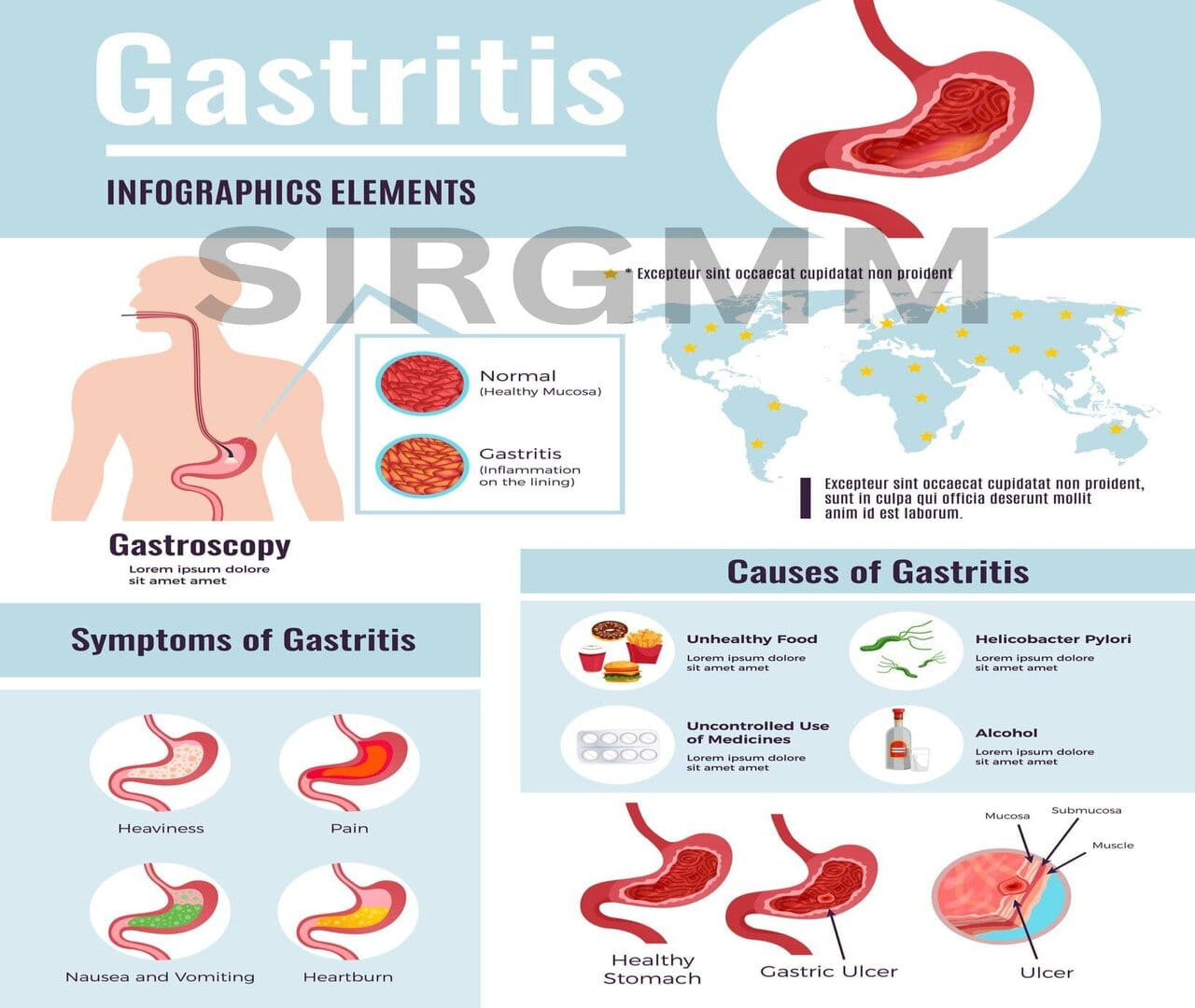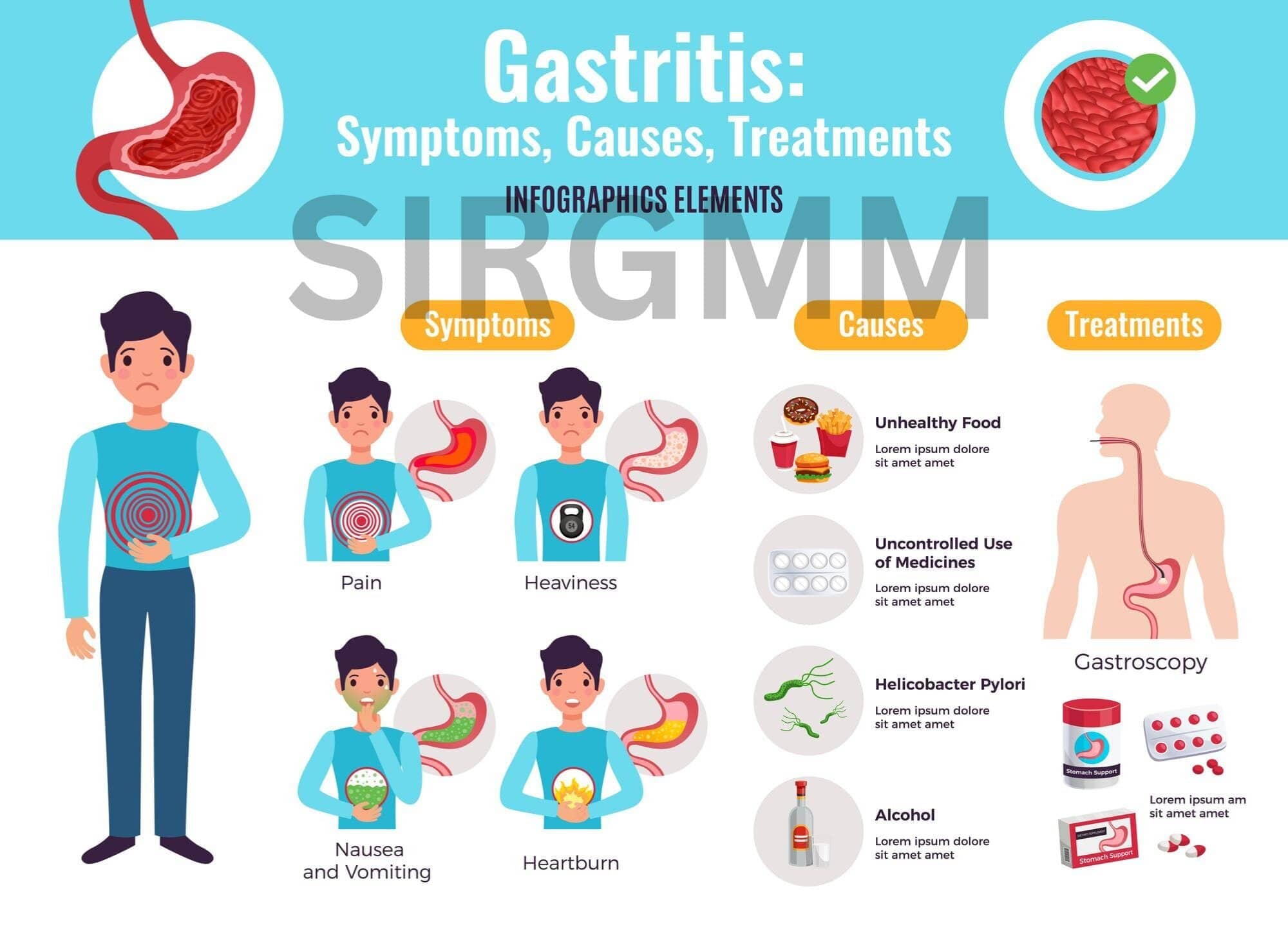“Gastroenteritis: It’s Not Just What You Eat, But What You Come In Contact With!”
The Role of Bacterial Infections in Causing Gastroenterits
Gastroenteritis is a condition characterized by inflammation of the stomach and intestines, leading to abdominal cramps, nausea, vomiting, and diarrhea. Bacterial infections are a common cause of gastroenteritis, with the most common culprits being Salmonella, Shigella, Campylobacter, and Escherichia coli. The primary route of transmission for bacterial gastroenteritis is through the ingestion of contaminated food or water. Salmonella and E. coli, for example, are commonly found on poultry, beef, and other animal products, as well as in water contaminated with fecal matter.
Shigella and Campylobacter are transmitted through contaminated food, water, or contact with an infected person. Other risk factors include poor hygiene and contact with animals. Once inside the body, the bacteria can cause inflammation of the gastrointestinal tract, leading to symptoms such as abdominal cramps, nausea, vomiting, and diarrhea. In some cases, these symptoms can be severe and even life-threatening. In addition, the bacteria can spread to other parts of the body, leading to systemic infection. In order to diagnose bacterial gastroenteritis, a doctor may perform a stool sample test to identify the presence of bacteria.
Treatment may involve antibiotics, fluids, and electrolytes to replenish lost fluids and electrolytes. In more severe cases, hospitalization may be necessary. Bacterial infections are a common cause of gastroenteritis and can be dangerous if left untreated. It is important to practice good hygiene to prevent the spread of these bacteria, as well as to seek medical attention if symptoms arise.
Understanding the Causes of Viral Gastroenterits
Viral gastroenteritis is an inflammation of the stomach and intestines caused by a virus. It is also commonly known as the “stomach flu” and is one of the most common illnesses in the world. It is often accompanied by symptoms such as diarrhea, nausea, vomiting, abdominal cramps, and fever. It can be a very uncomfortable and disruptive condition, but fortunately, it is usually not serious and resolves itself in a few days.
The most common cause of viral gastroenteritis is norovirus, which is a group of viruses that can affect people of all ages. The norovirus is highly contagious and is usually spread through contaminated food and water, contact with an infected person, or contact with contaminated surfaces. It can also be spread through the air if someone vomits. Other viruses that can cause viral gastroenteritis include rotavirus, astrovirus, and adenovirus. Rotavirus is the leading cause of severe diarrhea in children, and astrovirus, which is rarely associated with illness, can cause mild to moderate symptoms in adults.
Adenovirus, another common virus, can cause a range of symptoms, including gastroenteritis, in both adults and children. In some cases, bacterial infections can also cause gastroenteritis. The most common type of bacterial infection is salmonella, which is usually spread through contaminated food and water. Other bacterial infections, such as shigella and campylobacter, can also cause gastroenteritis.
Viral gastroenteritis is often treated with over-the-counter medications, such as antidiarrheal drugs and antiemetics, to help reduce symptoms. In more severe cases, antibiotics may be prescribed to treat any underlying bacterial infection. In most cases, however, rest, hydration, and a bland diet are all that is needed to help the body recover from viral gastroenteritis.
Food Poisoning: A Common Cause of Gastroenterits
Food poisoning is a common cause of gastroenteritis, a condition characterized by inflammation of the stomach and intestines. Gastroenteritis can cause a range of symptoms, including nausea, vomiting, abdominal pain, diarrhea, and fever. It can be caused by a variety of factors, but food poisoning is one of the most common sources of infection. Food poisoning occurs when food and drinks are contaminated with bacteria, viruses, or parasites.
These contaminants may come from improper handling and storage of food, contaminated surfaces, or contaminated water. When ingested, these contaminants can cause an infection in the digestive system. The severity of the illness depends on the type of contaminant, the amount ingested, and the person’s overall health. Common symptoms of food poisoning include nausea, vomiting, abdominal cramps, diarrhea, and fever. In some cases, the illness may last for several days and require medical treatment. In severe cases, food poisoning can cause dehydration, electrolyte imbalance, and organ failure.

To reduce the risk of food poisoning, it is important to practice proper hygiene and food handling techniques. Food should be washed and cooked thoroughly, and hands should be washed thoroughly before and after handling food. Food should also be kept at the proper temperature and stored properly to prevent contamination. It is also important to avoid consuming raw or undercooked foods, as well as unpasteurized dairy products and juices. If you suspect that you have food poisoning, it is important to seek medical attention.
Your doctor may recommend a course of antibiotics or other medications to treat the infection. It is also important to drink plenty of fluids to prevent dehydration. By following these steps, you can help reduce the risk of food poisoning and its associated symptoms.
How Parasitic Infections Lead to Gastroenterits
Parasitic infections can lead to gastroenteritis, an inflammation of the lining of the stomach and intestines. Parasites can enter our digestive system when we consume food or water that is contaminated with their eggs, larvae, or adult forms. These parasites then attach to the lining of the digestive tract, where they feed on the nutrients meant for our bodies. This can cause an imbalance in the digestive system, leading to abdominal cramping, nausea, vomiting, and diarrhea.
Parasitic infections that can lead to gastroenteritis include giardiasis, cryptosporidiosis, and amebiasis. Giardiasis is caused by the Giardia parasite, which is found in contaminated food or water. Symptoms, which may begin a few days after infection, include diarrhea, nausea, and bloating. Cryptosporidiosis is caused by the Cryptosporidium parasite, which can survive in water for long periods of time and is often spread through contaminated water supplies.
Symptoms include diarrhea, abdominal cramps, and low-grade fever. Amebiasis is caused by the Entamoeba histolytica parasite, which can also be found in contaminated food or water. Symptoms of amebiasis include abdominal pain, diarrhea, nausea, and vomiting. If you think you have been infected with a parasitic infection, it is important to seek medical attention.
Your doctor can diagnose the infection and provide treatment to help relieve the symptoms of gastroenteritis. Treatment may involve antibiotics and other medications, as well as dietary changes. In some cases, hospitalization may be required if the infection is severe.
How Poor Hygiene Habits Spread Gastroenterits
Gastroenteritis commonly referred to as the stomach flu is an infection of the gastrointestinal tract that is caused by a variety of bacteria, viruses, and parasites. Poor hygiene habits can spread gastroenteritis from person to person, making it important for individuals to be aware of how to reduce the risk of infection. One of the most common ways that poor hygiene habits can spread gastroenteritis is through hand-to-mouth contact.
If an individual has not washed their hands after using the bathroom or after coming into contact with a contaminated surface, they can transfer harmful bacteria and viruses to their mouth when they touch their face or eat food. Additionally, if an individual has not washed their hands after changing a diaper or handling pet feces, they can spread the infection to other people. Poor hygiene habits can also spread gastroenteritis through food. If food is prepared by someone who has not washed their hands, the bacteria and viruses that are on their hands can be transferred to the food and then to the individual who consumes it.
Additionally, if food is left out at room temperature for too long, bacteria and viruses can begin to multiply, making it even more likely for the individual to become infected. Finally, poor hygiene habits can spread gastroenteritis through contact with an infected individual. If an individual is infected with the virus, then the virus can be spread to other individuals through coughing, sneezing, or direct contact with the infected individual. It is important for individuals to maintain a safe distance from those who are infected, as well as to wash their hands frequently to reduce their risk of becoming infected.
In order to reduce the risk of gastroenteritis, it is important for individuals to practice good hygiene habits. This includes washing hands regularly with soap and water, avoiding contact with those who are infected, and preparing food safely. By following these simple steps, individuals can help to reduce the spread of gastroenteritis.

